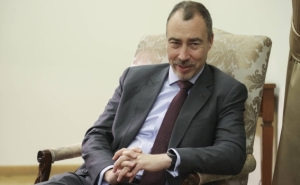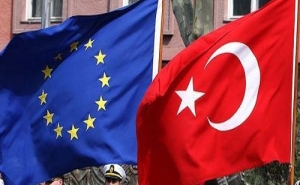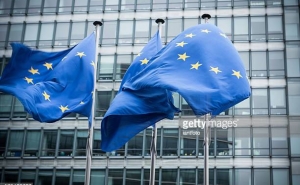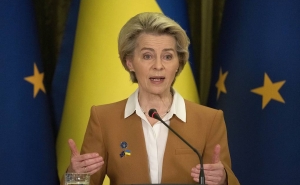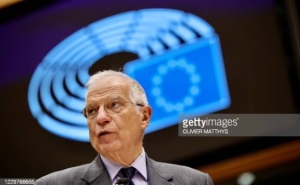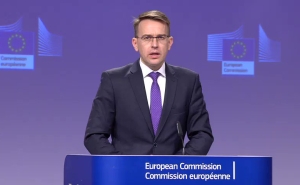 The EU EaP Future to Be Built on Dreams and Hopes
The EU EaP Future to Be Built on Dreams and Hopes
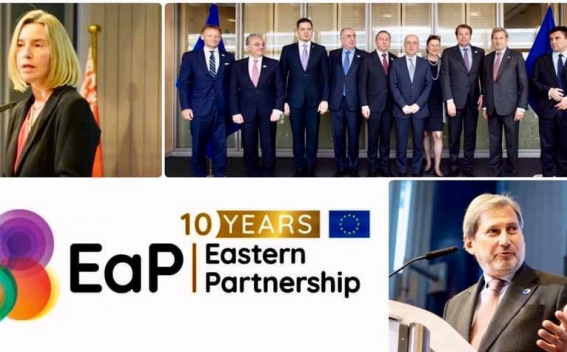
10 years of Eastern Partnership policy were summed up in Brussels on May 13-14. EU high-ranking officials in their speeches tried to summarize the key achievements of the past years and set the development landmarks.
10 key achievements relating to the economic sphere, public relations, energy, and so on were published. The key political achievement is the signing of Association Agreements with three of the six EaP countries, the Comprehensive and Enhanced Partnership Agreement with Armenia, talks with Azerbaijan over an agreement and agreement on developing priorities of cooperation with Belarus.
An attempt to highlight the key messages heard during these events, will record the following:
- The European Union provides a differentiated approach to partner countries, based on their ambitions,
- Eastern Partnership is not a policy against anyone,
- Eastern Partnership does not imply geopolitical choice and struggle for influence,
- Further emphasis will be put on the work of societies, particularly with civil society and youth. Plans to work with and engage them are to be developed.
It is difficult to say whether the EU expected such results from policy 10 years ago. But the geopolitical developments in the region and the national interests of actors have made some edits, leading to what we have today.
Today the EU problem is not having similar agreements with the Eastern partners and moving forward with common principles, but not losing partners in the region and finding ways to deepen cooperation with them. The key was seen in a differentiated approach aimed at meeting the aspirations of partner countries and supporting them in achieving their goals. As stated in a statement on behalf of the EU High Representative Federica Mogherini, "the policy will be the common property of the parties, will be based on shared responsibility, inclusion, differentiation and meeting conditions and will be built on the basis of national priorities."
As to RA-EU relationships, Armenia is currently perceived by the European Union as a good example of successfully implementing the proclaimed principles, something that evidences to the effectiveness of the policy adopted. As Jean-Claude Juncker, President of the European Commission stated, “The agreement with Armenia is the best proof that the European Union does not force the six partners to choose between us and the others.” Johannes Hahn, European Commissioner for European Neighbourhood Policy and Enlargement Negotiations stressed that the agreement with Armenia stems from Armenia’s aspirations and considers its membership to the EEU.
The directions of the Eastern Partnership policy development are summed up in a 2017 document adopted at the Brussels Summit, the "20 Target Result for 2020" which are to be achieved within the defined period. The results of their monitoring were also published. A considerable part of them is still half way, and the key task remains to fully implement them.
Further development of policy, as stated by Federica Mogherini, must be based on needs, aspirations, dreams and hopes.
Other materials on this subject
- Zohrab Mnatsakanyan Participated in the Meeting of the Eastern Partnership Foreign Ministers Within the framework of the 26th OSCE Ministerial Conference in Bratislava, Foreign Minister Zohrab Mnatsakanyan participated in the meeting between the newly appointed EU High Representative for Foreign...
- INSIGHT From Yerevan: 10th Anniversary of the Eastern Partnership “Insight from Yerevan: Earth” hosted political scientist, PhD Narek Grigoryan, to discuss the 10th anniversary of the Eastern Partnership, EU policy and RA-EU relations.
- Azerbaijan And European Union at Odds Azerbaijan does not succeed in enshrining the desired wording in its documents with the European Union.
- Armenia-EU New Agreement Outlines a Very Good Path for Future Partnership Armenia decides itself how far to go in this partnership taking into account that the country is a member of the Eurasian Economic Union.
- From the EaP Countries, Only Azerbaijan and Belarus Were Completely Deprived of the USAID Financial Support Instead, Trump will bring bilateral relations with other countries to the sphere of mutual agreements by the principle "what for what."
-
 17:08
17:08The regular session of the Anti-corruption Policy Council takes place in Jermuk
-
 15:05
15:05The Prime Minister sends congratulatory messages to the supreme leader of Iran and the President of Iran
-
 11:11
11:11Armenia sends earthquake aid to Turkey
-
 10:43
10:43Commemoration of the Pontiff St. Sahak Partev
-
 09:16
09:16Some roads are closed and difficult to pass in Armenia
-
 19:55
19:55Phone conversation of the Foreign Minister of Armenia with the U.S. Assistant Secretary of State for European and Eurasian Affairs
-
 18:30
18:30Prime Minister Pashinyan and President Khachaturyan meet
-
 18:20
18:20Ararat Mirzoyan with Co-Chairman of the OSCE Minsk Group of France Brice Roquefeuil
-
 17:01
17:01Humans could land on Mars within 10 years, Musk predicts
-
 16:45
16:45France, US urge 'immediate' end to Nagorno Karabakh blockade
-
 16:01
16:01Blockaded Nagorno Karabakh launches fundraiser to support quake-hit Syria
-
 15:59
15:59Earthquake death toll in Turkey rises to 18,342
-
 15:43
15:43Ararat Mirzoyan Held a Telephone Conversation with Sergey Lavrov
-
 15:06
15:06French president rules out fighter jet supplies to Ukraine in near future
-
 14:47
14:475 Day Weather Forecast in Armenia
-
 14:44
14:44President Vahagn Khachaturyan wrote a note in the book of condolences opened in the Embassy of Syria in Armenia
-
 14:20
14:20Azerbaijan’s provocations impede establishment of peace and stability – Armenian FM tells Russian Co-Chair of OSCE MG
-
 12:57
12:57France representation to OSCE: Paris calls on Azerbaijan to restore freedom of movement through Lachin corridor
-
 11:40
11:40Command of Kosovo forces highly appreciated preparation of Armenian peacekeepers
-
 10:16
10:16The United States withdrew from sanctions against Syria for six months the provision of assistance after the earthquake
day
week
month
Humidity: %
Wind: km/h



